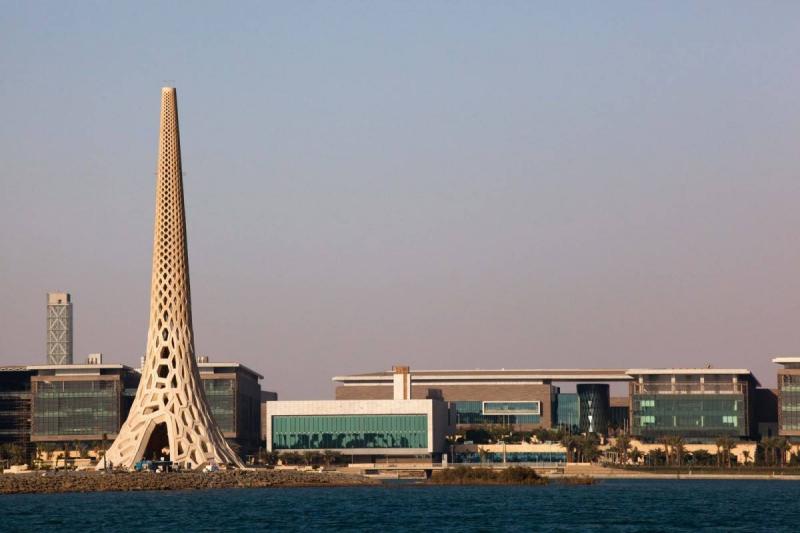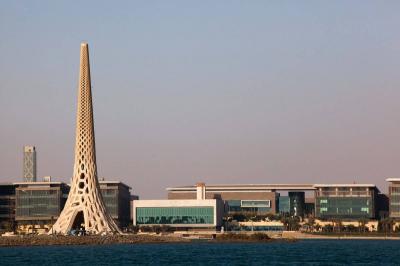Under the title "Saudi Arabia Tests Carbon Freezing to Reduce Power Plant Emissions," Bloomberg Asharq reported that scientists in Saudi Arabia are testing a new idea aimed at slowing climate change, which involves freezing greenhouse gas emissions from power generation plants. A team at a university in Jeddah, overlooking the Red Sea, is experimenting with a technique to cool carbon dioxide generated by burning fossil fuels for electricity production. Once carbon is in a solid form or "dry ice," the pollutants can either be stored underground or used in the production of chemicals and other products, at least in theory.
**Cost Reduction**
With governments intensifying efforts to prevent global temperatures from rising more than 1.5 degrees Celsius above pre-industrial levels, researchers are working on developing methods to reduce or absorb emissions. The challenge is that making the technology cheap enough for widespread use is not easy. In this case, the cooling technology developed by "Sustainable Energy Solutions," a private company based in Salt Lake City, Utah, is being tested at King Abdullah University of Science and Technology in Jeddah. This technology has been tested to capture about one ton of CO2 daily. Scientists hope to capture up to 25 tons per day from a power plant near the new city of "Neom" within two years, according to William Roberts, a professor at the university. He revealed that the project will cost around $25 million.
If the Saudi university team successfully achieves this goal, they plan to create a unit capable of isolating about 1,000 tons daily. However, even this amount will represent a small total, as the kingdom produced 582 million tons of CO2 in 2019, or nearly 1.6 million tons daily, according to the Global Carbon Project. Nonetheless, freezing is expected to cost between $35 to $40 per ton on a large scale, about half the cost of many other currently used technologies, according to Roberts. He added, "We believe the energy costs are low, the carbon footprint is small, and capital expenditures are not excessively high. Efficiency improves as the scale of the process increases." It is estimated that a large-scale carbon capture unit would consume about 10% of the energy produced by the associated power plant.
**Economic Viability**
The team at King Abdullah University of Science and Technology ultimately hopes to demonstrate to policymakers the feasibility of deploying the technology in power generation plants across the kingdom. One potentially economically viable use could be freezing emissions from container ships, which can store dry ice as additional cargo. Julio Friedman, a senior researcher at the Center on Global Energy Policy at Columbia University, stated that "the only way we will know whether the costs of freezing technology are accurate is to build the pilot program, operate it, and audit it."
Saudi Arabia, the world's largest oil exporter, has faced criticism from activists for moving too slowly to curb emissions. Its climate policies have been rated as "dangerously inadequate" – the lowest possible rating – by the Climate Action Tracker. Meanwhile, Saudi Arabia maintains that the world will need oil for decades to come, as most renewable energy sources remain too expensive or ineffective to replace traditional energy. However, the kingdom's government has pledged to stop using oil in local power plants by 2030, opting instead for solar, wind, and natural gas for its energy grid.




